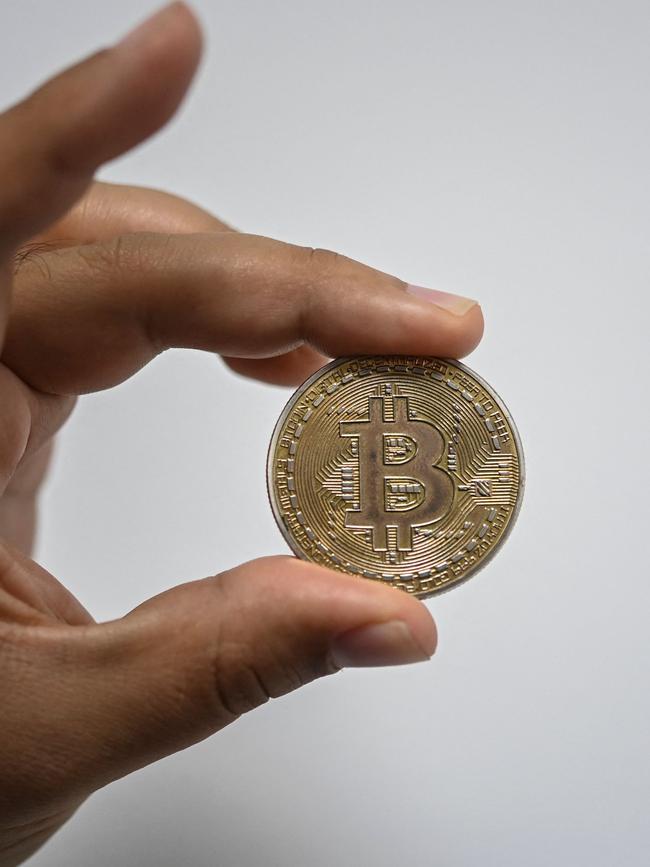Crypto firms Coinbase, Kraken call for regulatory fast-track
Australia is falling behind other jurisdictions when it comes to encouraging investment in crypto companies, a Senate hearing has heard.

Australian crypto exchanges have called for a fast-track of national crypto regulations, as federal parliament mulls a Senator’s private bill that would force minimum standards in terms of capital requirements, cybersecurity, and disclosure obligations for digital asset exchanges.
On Tuesday crypto providers including Kraken, Coinbase and Swyftx fronted a Senate committee inquiry into a proposed bill from Liberal Senator Andrew Bragg – The Digital Assets (Market Regulation Bill) 2023 – that he says would expedite new regulations and provide greater certainty for the crypto sector.
In March this year documents released under freedom of information laws revealed Treasury’s timetable for consultation on new crypto legislation would stretch into 2024, which was timing that Senator Bragg said would be too late and cost local jobs.
“Labor has deliberately slowed our crypto reform plan,” Senator Bragg told The Australian on Tuesday.
“We were going to be a crypto hub but we’re becoming a backwater under Labor. My bill demonstrates the reform can be delivered this year, not 2025. If the unions asked for this, it would have been done last year.”
The move comes during a bear market and a wave of uncertainty for the crypto industry globally which has been hit by regulatory scrutiny and depressed valuations, while Australia’s big four banks have moved to block payments to crypto exchanges amid a significant uptick in payment-related scams.
Jonathon Miller, the local managing director of global crypto exchange Kraken, told The Australian on Tuesday that the so-called Bragg bill represented an important moment for the future of the crypto industry in Australia.
Mr Miller wants Treasury to develop a new, stand-alone regulatory regimen for centralised cryptoasset service providers and said that local consumers should face locally regulated entities.
In some cases those would be the locally regulated faces of global crypto firms like Kraken, which is based in the United States, he said.
“I am pleased to have had the opportunity to appear before the inquiry today, it’s encouraging to see the government engage with the industry on these important matters,” Mr Miller said.
“The Bragg bill goes some way to addressing the critical aspects of crypto policy development which requires legislators to strike a careful balance between the need for responsible controls and the opportunity to foster innovation.
“Importantly, the bill recognises the fact that we cannot copy-paste from existing finance frameworks – crypto requires a regulatory environment that is purpose built to effectively serve its unique characteristics.
“That being said, we don’t have to completely reinvent the wheel here in Australia. Crypto is a global industry by its very nature. It is crucial that we harmonise our regulatory environment with other global regimes to prevent a ‘regulatory arbitrage’ situation which would be counter-productive.”
Coinbase chief policy officer Faryar Shirzad said Australia was now behind jurisdictions such as the EU and the UK in regulating digital assets.

“There’s a huge, enormous value in any jurisdiction for political leaders to step up and essentially provide a national strategy or a national direction around crypto assets,” he told Tuesday’s inquiry.
“Even though much of the details are going to be worked out in the level-two process and in the development of the technical standards, that political imperative is now unambiguous and clear. And I think that’s an important thing for political leaders to keep in mind.
“... The other thing is the regulation of intermediaries and companies like Coinbase, who take money from the public and hold assets on behalf of the public.
“That’s a critical, critical function that should be subject to clear, comprehensive and rigorous regulation. Whenever you have any intermediary that takes the money or holds the assets of members of the public, that’s something that has to be subject to a clear and well organised, well structured, and clearly mandated regulatory framework.”
Treasury capital markets, payments, and financial innovation assistant secretary Nghi Luu told the hearing that the department was on track to release a discussion paper on licencing and custody requirements for crypto assets.
“I wouldn’t characterise it as a slowing down. What we did do was prioritise the token mapping exercise with the change of government,” she said.
“As part of that process, what we heard from stakeholders was the need to take a considered approach and to move at a measured pace, and the government committed to putting out a paper the middle of this year and we are on track to do that.”
The bill is set to be debated by the parliament next month.







To join the conversation, please log in. Don't have an account? Register
Join the conversation, you are commenting as Logout